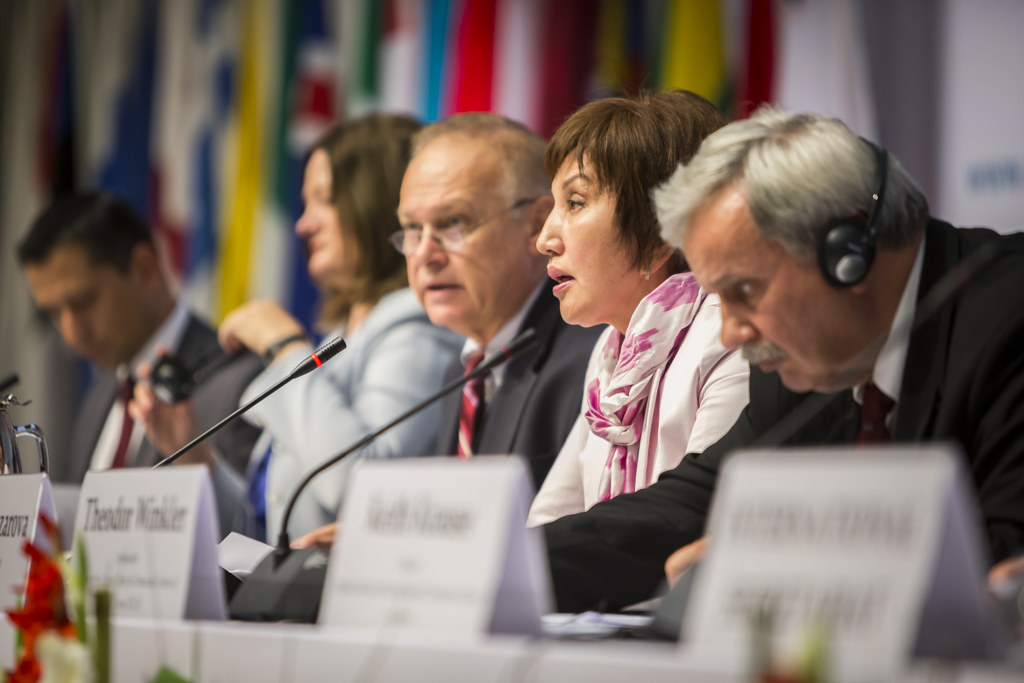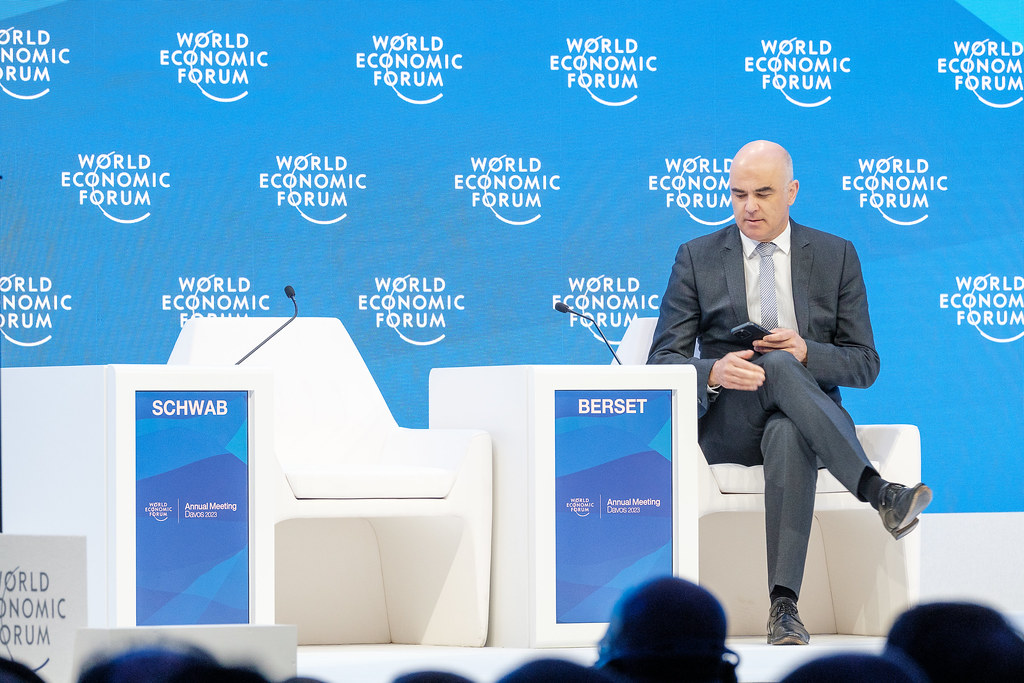Switzerland’s neutrality under scrutiny amid Ukraine conflict; uncertainty persists over its implications
The Swiss People’s Party (SVP), a right-wing political party, attempted to block Ukrainian President Volodymyr Zelenskyy from addressing the lower house of the Swiss parliament on Thursday. However, the motion was rejected by the parliament.
SVP parliamentarian Thomas Aeschi argued that Zelenskyy’s address would violate Switzerland’s neutrality. He claimed that Ukraine was trying to “directly influence parliamentary decision-making on the supply of weapons and ammunition.”

However, the majority of the parliament disagreed with Aeschi’s assessment. They argued that Zelenskyy’s address was an opportunity for the Swiss parliament to hear directly from the Ukrainian president about the war in his country.
Switzerland has a long-standing tradition of neutrality. However, the country has also condemned Russia’s invasion of Ukraine. In March, the Swiss government imposed sanctions on Russia and froze the assets of Russian oligarchs.
The SVP is a populist political party that has been critical of the Swiss government’s response to the war in Ukraine. The party has called for Switzerland to do more to help Ukraine, including providing weapons.
The rejection of the SVP’s motion to block Zelenskyy’s address is a sign that the Swiss parliament is willing to take a more active role in supporting Ukraine. The parliament’s decision is also a reminder that Switzerland’s neutrality is not absolute. The country has a long history of taking sides in conflicts, even when it does not officially participate in them.
In addition to the SVP, some liberal politicians have also called for Switzerland to loosen its neutrality. They argue that the country should be able to provide more support to Ukraine, including weapons. However, the Swiss government has so far resisted these calls, arguing that they would violate Switzerland’s neutrality.

The debate over Switzerland’s neutrality is likely to continue in the coming months. The war in Ukraine has raised new questions about the country’s role in the world. Switzerland will need to decide how to balance its commitment to neutrality with its desire to help Ukraine and other countries that are affected by conflict.
Preference for sanctions over firearms
Switzerland joined Western countries in imposing economic sanctions on Russia following its invasion of Ukraine in February 2022. The sanctions included measures such as freezing Russian assets and banning the export of certain goods to Russia.
The decision to impose sanctions was controversial in Switzerland, a country that has a long tradition of neutrality. Some Swiss politicians argued that the sanctions were necessary to show solidarity with Ukraine and to pressure Russia to end the war. Others argued that the sanctions violated Switzerland’s neutrality and that they would damage the country’s economy.
In the end, the Swiss government decided to impose sanctions, arguing that they were necessary to defend Switzerland’s values and interests. However, the government also promised to do everything it could to protect Swiss businesses and individuals from the negative effects of the sanctions.
The debate over Switzerland’s neutrality is likely to continue in the wake of the Ukraine war. The war has raised questions about whether Switzerland can remain neutral in a world where there are increasingly powerful and aggressive countries.
Former SVP leader calls for referendum on neutrality
Former Swiss People’s Party (SVP) leader Christoph Blocher has called for a referendum on anchoring neutrality deeper in the constitution. Blocher, who is a member of the Swiss executive branch, made the call in an interview with the Neue Zürcher Zeitung last March.
Blocher argued that the sanctions imposed on Russia by Switzerland and other Western countries were a violation of Switzerland’s neutrality. He said that the sanctions had made Switzerland a “co-belligerent” in the war in Ukraine.
Blocher called for a referendum on neutrality so that the Swiss people could decide whether or not they wanted to maintain the country’s traditional neutrality. He said that the referendum should be held as soon as possible.
It is unclear whether or not the Swiss government will call a referendum on neutrality. However, Blocher’s call has reignited the debate over neutrality in Switzerland.
Unveiling the origins of the ‘Rubber’ doctrine
Swiss historian Marco Jorio has criticized the Swiss People’s Party (SVP) for its narrow interpretation of neutrality. Jorio, whose book “Switzerland and its neutrality: A 400-year history” came out in April, told Deutsche Welle that the SVP’s understanding of neutrality is “highly ideological” and has “very little to do with the core of neutrality.”
Jorio argues that neutrality is a flexible doctrine that is primarily designed to serve the interests of the Swiss people. He points out that Switzerland has gone through many iterations of neutrality over the years, and that the policy has always been adapted to the changing circumstances of the time.
“It’s like rubber,” Jorio said of neutrality. “It can be stretched and molded to fit the needs of the moment.”
Jorio’s criticism of the SVP comes at a time when the party is under pressure to reconsider its stance on neutrality. The SVP has traditionally been a strong supporter of neutrality, but the party has come under fire for its opposition to sanctions against Russia.
The SVP’s stance on neutrality has also been criticized by some members of the Swiss government. In March, Swiss Foreign Minister Ignazio Cassis said that neutrality does not mean “indifference.” He said that Switzerland has a responsibility to stand up for what is right, even if it means taking sides in a conflict.
The debate over neutrality is likely to continue in the wake of the Ukraine war. The war has raised questions about the role of neutrality in the 21st century. It remains to be seen whether the SVP will be able to maintain its traditional stance on neutrality in the face of changing circumstances.
Exploring the complexities of Swiss neutrality
In everyday parlance, neutrality means impartiality, or not taking sides. However, the definition of neutrality under international law is much narrower. According to academic Paul Seger, the current Swiss ambassador to Germany, the core duty of a neutral state is to refrain from supporting, through military means, warring parties in an international armed conflict. Crucially, their legal duties and rights only apply when there is actually a war between two countries.
Switzerland has a long history of neutrality, dating back to the 17th century. The country’s neutrality was enshrined in its constitution in 1848. However, Switzerland’s neutrality has not always been absolute. For example, during World War II, Switzerland remained neutral but allowed Germany to use its railways to transport troops and supplies. This decision was controversial, and it led to some criticism of Switzerland from its European neighbors.
In more recent times, Switzerland has played a role as a trusted broker between belligerents. For example, Switzerland hosted the 1985 Geneva summit between US President Ronald Reagan and Soviet leader Mikhail Gorbachev. The summit was a pivotal moment in the final days of the Cold War.
However, Switzerland has also been criticized for its neutrality on some issues. For example, Switzerland opted out of international sanctions on the apartheid-era white minority government of South Africa. This decision was seen by many as a betrayal of the country’s commitment to human rights.
Switzerland’s neutrality is a complex issue with a long and complicated history. The country’s neutrality has been praised by some and criticized by others. However, there is no doubt that Switzerland has played an important role in international affairs, even while maintaining its neutrality.
The intricacies of Switzerland’s neutrality
A 2021 study by the Center for Security Studies at ETH Zürich university found that 96% of Swiss people supported neutrality and that 84% believed it was inseparably linked to the concept of the Swiss state.
In a small non-EU country with four national languages surrounded on all sides by members of the EU and (save Austria) NATO, neutrality seems to be something unifying.
Of the five remaining permanent neutrals in Europe, only Finland and Sweden have joined NATO since the start of the war in Ukraine. However, debate is certainly afoot in each of the remaining three countries.
What does the future hold for Switzerland’s neutrality?
It remains to be seen what the future holds for Switzerland’s neutrality. The war in Ukraine has raised questions about the role of neutrality in the 21st century. It is possible that Switzerland will need to reconsider its neutrality in order to meet the challenges of the 21st century.
However, it is also possible that Switzerland will be able to maintain its neutrality by adapting it to the changing circumstances of the world. Only time will tell what the future holds for Switzerland’s neutrality.
Here are some of the potential challenges to Switzerland’s neutrality:
- The rise of China and Russia as global powers.
- The increasing frequency and intensity of global conflicts.
- The growing threat of terrorism.
- The development of new technologies, such as cyberwarfare and artificial intelligence.
Switzerland will need to find ways to adapt its neutrality to these challenges in order to remain a respected and influential actor on the world stage.
The question on everyone’s lips
Swiss historian Marco Jorio does not foresee radical changes to Switzerland’s neutrality in the wake of the Ukraine war. He does not believe that Switzerland will join NATO, or that the Swiss army will start sending arms to Ukraine. However, he does believe that there is a possibility that Switzerland will modify its arms re-export rules for private firms.
Jorio argues that it would be possible for Switzerland to dial down its domestic arms re-export rules and still remain neutral under international law. He points out that the economic sanctions that Switzerland has imposed on Russia are arguably more provocative than allowing re-exports.
A poll conducted shortly after the outbreak of the war found that two-thirds of Swiss people opposed sending Ukraine weapons. However, the same poll found that almost as many people supported Switzerland getting more involved in Ukraine.
Ukrainian President Volodymyr Zelenskyy is known for his persuasive speeches. However, if he hopes to change the minds of Swiss lawmakers on Thursday, he should probably prepare for an uphill battle.
Here are some of the factors that could influence Switzerland’s decision on whether to modify its arms re-export rules:
- The ongoing war in Ukraine.
- The humanitarian crisis in Ukraine.
- The economic sanctions that Switzerland has imposed on Russia.
- Public opinion in Switzerland.
- The stance of Switzerland’s allies.
It is still too early to say what Switzerland will decide. However, it is clear that the war in Ukraine has raised questions about the country’s neutrality. Switzerland will need to carefully consider all of the factors involved before making a decision.
SOURCE: DW


